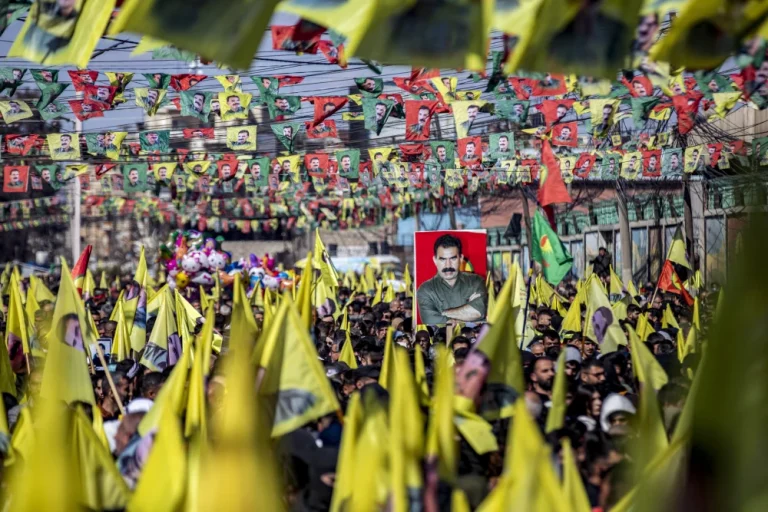Outlawed Kurdish group, the PKK, has announced a ceasefire with Turkey following a call from its imprisoned leader, Abdullah Ocalan, for the movement to lay down its arms and disband.
In a statement on Saturday, the PKK expressed hope that Turkey would release Ocalan, who has been held in solitary confinement since 1999, so he could oversee the disarmament process. This follows his recent appeal to end the four-decade-long armed struggle in southeastern Turkey, a conflict that has claimed tens of thousands of lives.

Ocalan’s statement comes months after Devlet Bahceli, leader of the ultra-nationalist MHP party and a key ally of the Turkish government, launched an initiative aimed at resolving the conflict.
The Kurdistan Workers’ Party (PKK) began its insurgency in 1984 with the goal of establishing an independent Kurdish state. Over time, it has shifted its focus to advocating for greater autonomy and expanded Kurdish rights. The group is designated as a terrorist organisation by Turkey, the EU, the UK, and the US.

Ocalan—known as “Apo” among Kurdish nationalists—met with pro-Kurdish MPs on Imrali, an island in the Sea of Marmara where he is imprisoned. In a letter read aloud by DEM Party members Ahmet Turk and Pervin Buldan in both Kurdish and Turkish, he urged all PKK factions to disarm, stating that the organisation should dissolve itself. He attributed the PKK’s initial formation to the suppression of democratic political channels but acknowledged that the political climate had since changed, partly due to Bahceli’s efforts.
The PKK’s executive committee, quoting Ocalan, declared an immediate ceasefire: “None of our forces will take armed action unless attacked.” However, the group also demanded improved conditions for, asserting that he must be able to “live and work in physical freedom” and communicate freely with associates.

Turkish President Recep Tayyip Erdogan responded on Saturday, warning that military operations against the PKK would resume if the group failed to uphold its commitments or stalled the disarmament process.
The ceasefire announcement has been met with cautious optimism among Kurdish leaders, with thousands gathering in Diyarbakir and Van to watch the statement on large screens. However, skepticism remains among both Kurdish and Turkish communities about whether lasting peace is achievable.

Senior PKK commander Duran Kalkan recently accused Turkey’s ruling AKP of seeking to “take over, destroy, and annihilate” rather than pursue a genuine resolution. Additionally, Turkish-backed forces in northeastern Syria have ramped up operations against Kurdish groups, calling on Syria’s new leadership to dismantle the Kurdish-led Syrian Democratic Forces (SDF).

Pro-Kurdish politicians in Turkey have also faced a wave of arrests and legal action in recent years. Since the PKK’s insurgency began, approximately 40,000 people have been killed, with a sharp rise in violence between 2015 and 2017 following the collapse of a previous ceasefire.
The latest ceasefire comes amid heightened tensions, with the PKK claiming responsibility for an October attack on Turkish Aerospace Industries (TAI) headquarters near Ankara, which left five people dead.




